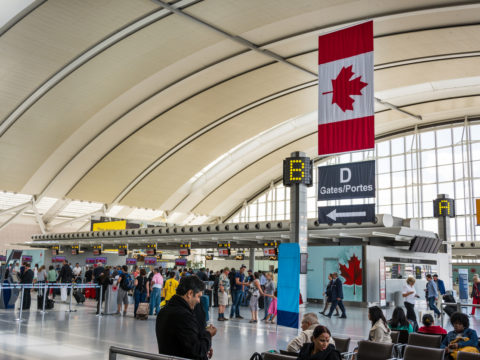
As COVID-19 cases in both countries are on the rise, the Canada-U.S. border will remain closed for another month.
CTV News is reporting that the current travel restrictions at the Canada-U.S. border that are set to expire on Nov. 21 will be extended until at least Dec. 21. With new coronavirus cases in the U.S. approaching 200,000 per day, it is unlikely the border will open before 2021.
The travel restrictions between the Canada-U.S. border are separate from Canada’s international travel restrictions which will to expire on Nov. 30.
What travel restrictions mean for Americans wanting to come to Canada
The Canada-U.S. border is still open for business. Goods and essential services are free to enter Canada. So are most international students and workers. What isn’t allowed is tourism.
If American residents have immediate family in Canada or even extended family like an unmarried partner, they can apply for an exemption from travel restrictions. Applications for compassionate travel to Canada, for example, to attend a funeral, will be evaluated on a case by case basis.
Any American resident who receives written authorization confirming their exemption from travel restrictions must use the new ArriveCAN application that provides contact information to the government of Canada.
All travellers to Canada, including Canadians returning home, must adhere to the mandatory 14-day quarantine period. There are some exceptions to this rule. Select travellers who are providing essential services or for those who receive a special exemption can enter Canada without the mandatory 14-day isolation period.
COVID-19 in Canada
Many parts of Canada are seeing spiking cases of coronavirus infections and some major urban centres are experiencing lockdowns. What has many public health officials concerned are rising case numbers in regions of Canada that were relatively spared from the first COVID-19 wave.
British Columbia has seen alarming rates of COVID-19 cases as well as Alberta. Saskatchewan and Manitoba are also seeing increasing infection rates.
Ontario and Quebec, the two provinces hit hardest during the first wave of the Coronavirus outbreak are also seeing alarming rates of infection despite lockdown measures.
As of writing this, Canada currently has 51,602 active COVID-19 cases and 11,186 deaths associated with the virus.




